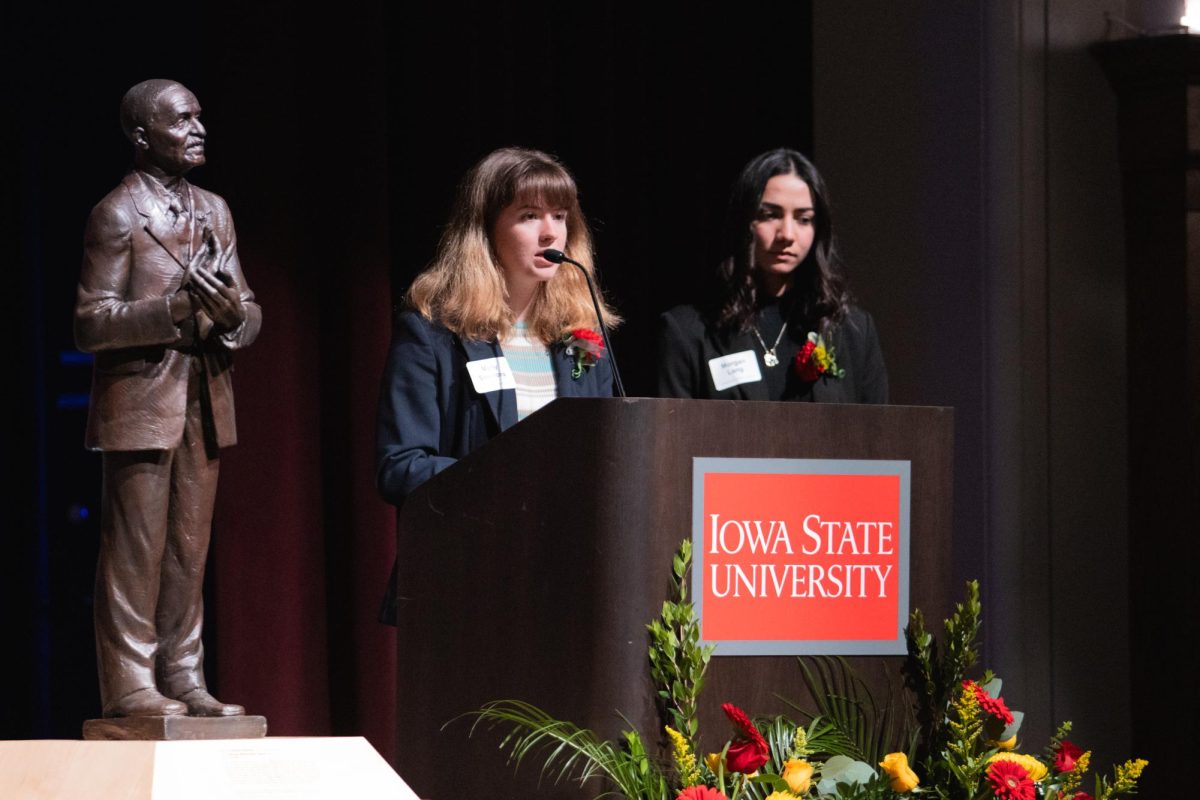Seeking enlightenment
February 23, 2005
Caroline Johnson had spent several years contemplating different religions, trying to find one that suited her spirituality.
Last semester, she found Buddhism.
“It’s pretty much all I had been looking for in a religion,” says Johnson, sophomore in geology.
Johnson is one of many Buddhists in the area who practice one of the various forms of the religion. These different sects are represented by organizations based in Des Moines, Ames and on the ISU campus.
Although each branch teaches different practices and focuses on different aspects, some unifying principles underscore the religion in general.
The focus of Buddhism is to understand and appreciate the unity that exists between one’s self and everything in the universe. This unity calls for kind treatment of others and the world and is understood through self-focus and attempts to better one’s self.
Timothy Mullaney, coordinator of the Ames Karma Kagyu Study Group, says the main focus of Tibetan Buddhism is compassion.
“The deeper your compassion is, the closer you are to the heart of Buddhism — by compassion, I mean that you wish that others would not suffer,” Mullaney says. “It’s about discovering your own ultimate capability to be happy and simultaneously to be able to lead others to that same happiness. You can’t separate the one from the other. You don’t get to be happy until you’re interested in others’ happiness.”
The Karma Kagyu Study Group teaches that Buddhism is a science of the mind and attempts to understand this science through meditation. Mullaney cautions against interpreting meditation as a self-indulgent practice, a means to escape from reality or even a form of relaxation.
“We use meditation to create a state of openness and responsiveness to our world,” he says. “We use meditation to cultivate peacefulness at first. Then we use it to gain insight. Calmness is a means to an end, not an end in itself. It helps us to develop compassion and love.”
The ISU branch of the Buddhist Soka Gakkai International organization, of which Johnson is an officer, has a similar emphasis on self-focus and compassion for others. This form of Buddhism, however, uses the practice of chanting rather than meditation.
“Chanting is a way of focusing inward on yourself and harnessing within yourself to become a better person,” says Gary Hackbarth, faculty adviser for the organization and assistant professor of logistics, operations and management information systems.
“Chanting is about focusing the inner energy that’s within to the rest of the universe,” he says.
Hackbarth says followers of Nichiren Daishonin Buddhism attempt to change something in their life or alter their karmic state through chanting.
Karma in this sense is the summation of the good and bad in one’s current life and previous existence.
This karma makes up the energy that is you, he says. This energy is not lost in death, but determines the state of one’s next existence.
The Buddha freed himself from this cycle of karma through achieving enlightenment, or awakening to the truth of the world, Mullaney says. Modern-day Buddhists seek to follow the Buddha’s example rather than simply worshipping him. “We don’t pray to that fat little Buddha guy,” Hackbarth says. “The Buddha is an example of something you could become, not something you’re praying to.”
Johnson explains all people have the nature of Buddha within themselves and therefore have the potential to become enlightened.
The purpose of the campus organizations is to support practitioners on this path to enlightenment, as well as to promote peace, culture and education in the community, both Hackbarth and Mullaney say.
Both believe that the community provides a positive environment for Buddhist practice.
“Ames and Iowa State have been very hospitable to our presence, and we in turn welcome everybody,” Mullaney says. “They don’t have to want to become Buddhist to come [to our meetings]. We aren’t trying to convert anyone.”






